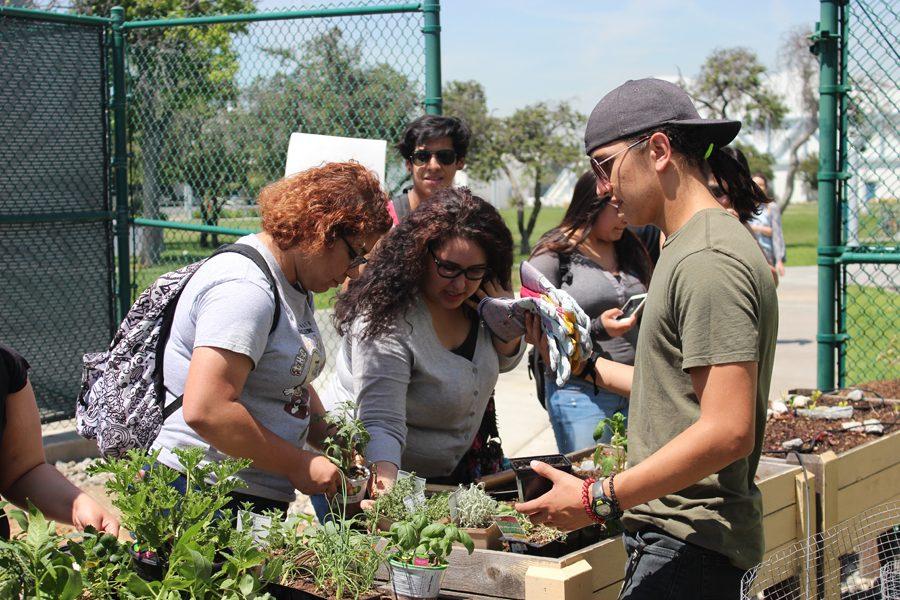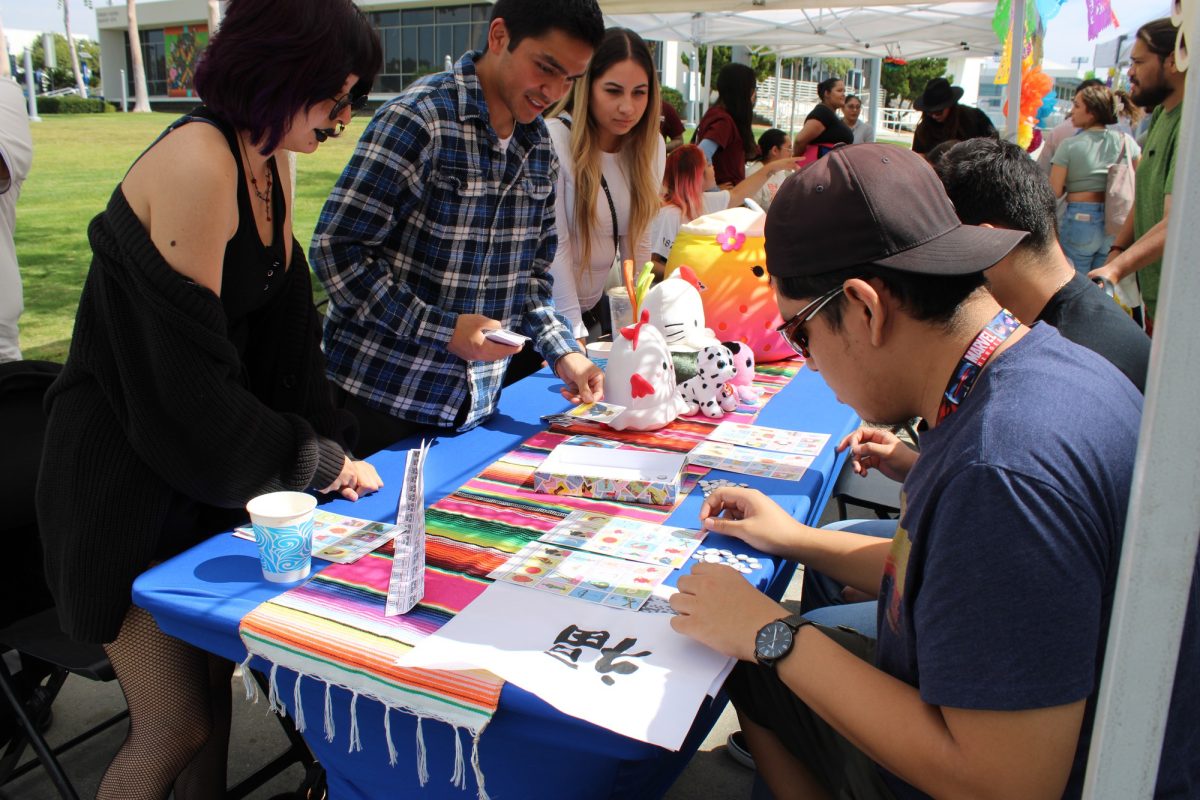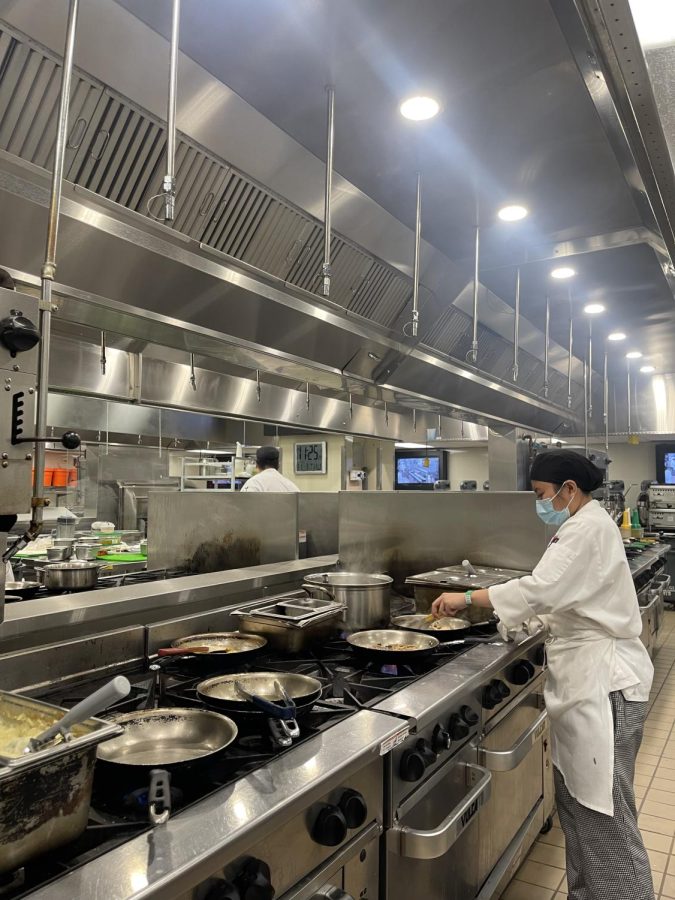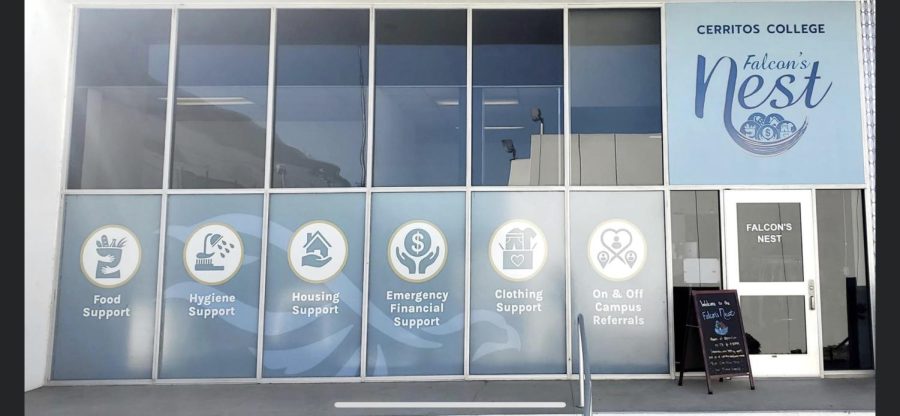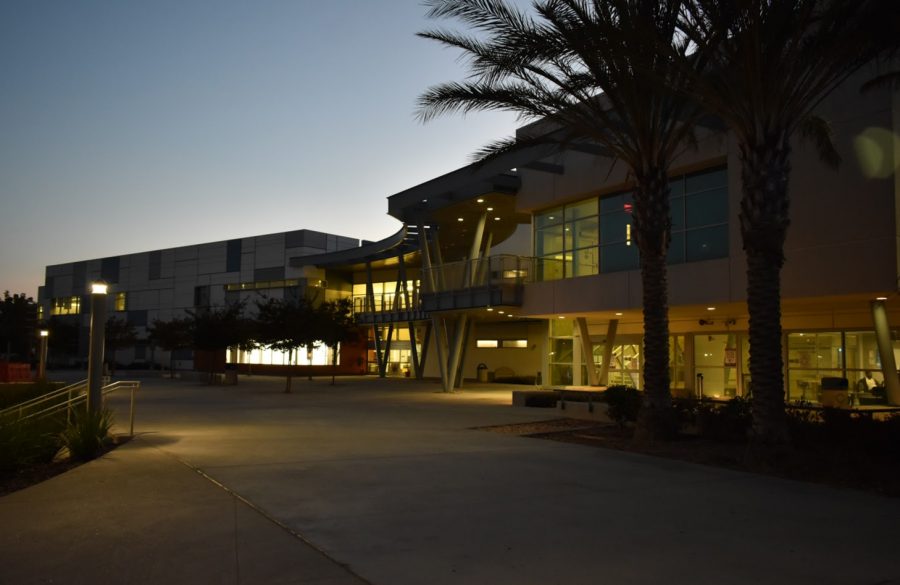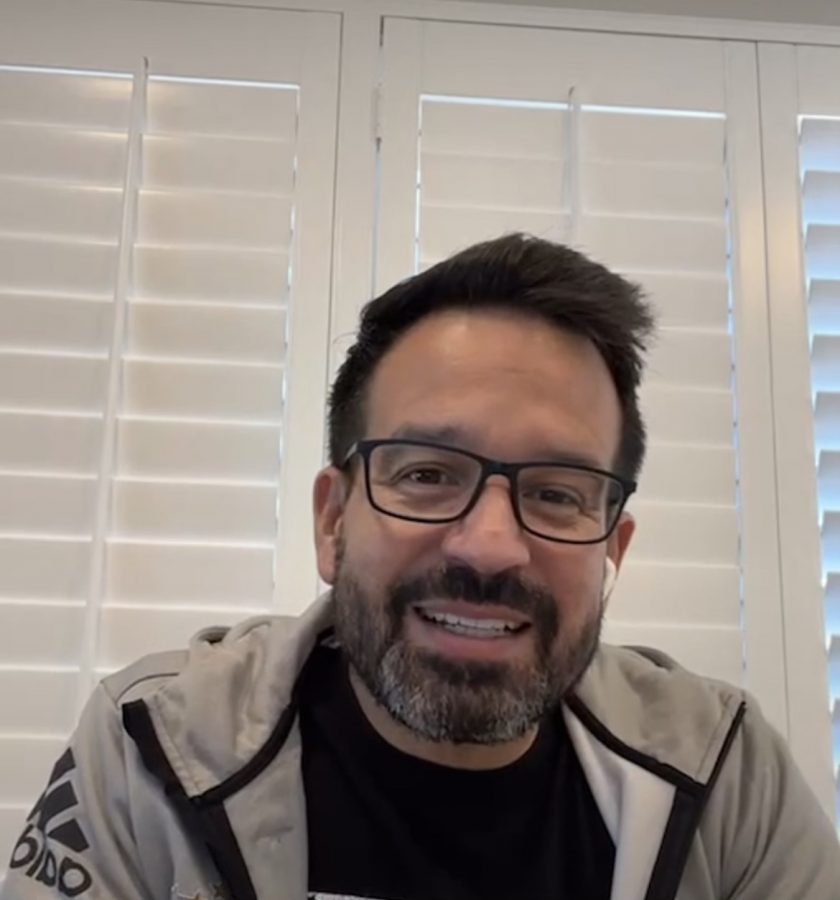The Environmental Club is looking to get students more involved in running their garden.
For Psychology major Eddie Santana, who is a part of the club, says a lot of people don’t know the club even has a garden and hopes students learn from this event.
“Not that many people know how to plant stuff, they think you just stick a seed and that’s it, you just start watering, but it’s also just knowing that they can do something other than you know.
“People think that you only make a difference liking recycling, eating vegan or stuff like that, but small things will help.“
The garden is located next to the Student Health & Wellness Center.
Many environmental geography students were offered extra credit to come to the event, Ingrid Viaz being one of them.
“I wanted to help out and learn how to plant and to take care of plants better.”
The event offered students and faculty a chance to get their hands dirty in the garden and help plant seeds or sprout plants.
Ana Ong, an economics major, wanted this event to spread awareness to students and faculty.
“I want to show them that they can affect the environment by doing things at their house, not just doing big things but planting seeds, growing their own vegetables, growing their own stuff, making a difference even if it’s just for fun, growing a little flower. That’d be cool.”
Stepping in as co-advisor for the club, Sue McNulty, biology and environmental science professor, explained to students the processes of wanting to garden at home.
· To plant an organic garden, get organic soil and compost.
· You can either grow from seeds; the heirloom seeds are really good
· It’s important to feed water before you put the seed in and during the process when the seed is sprouting.
· For the easiest grow its best to use a biodegradable planter, so when the seedling is sprouted and ready to plant in the ground, the planter itself will decompose in the dirt.
· Once the seed starts to sprout and weeds grow, the planter must be moved to the dirt.
· In the ground, make sure that each sprout is given enough space.
· Until the plant starts to sprout all they need is water.
Students and Faculty are welcomed to plant vegetables at home and when ready to sprout, they are welcome to bring their plants to the garden.
For more information on the environmental club and their garden, visit their Facebook page at https://www.facebook.com/ccenviroclub

